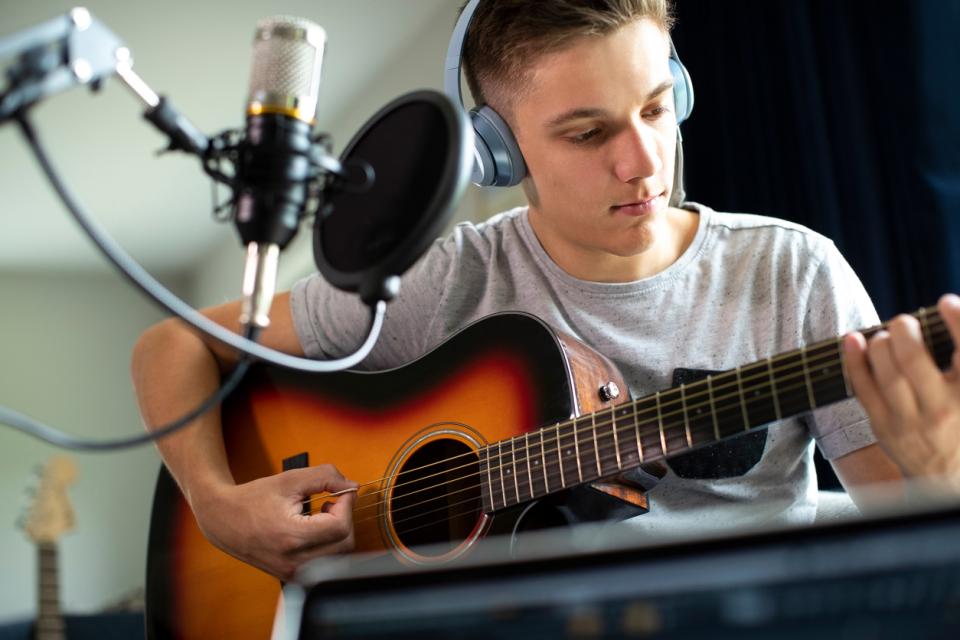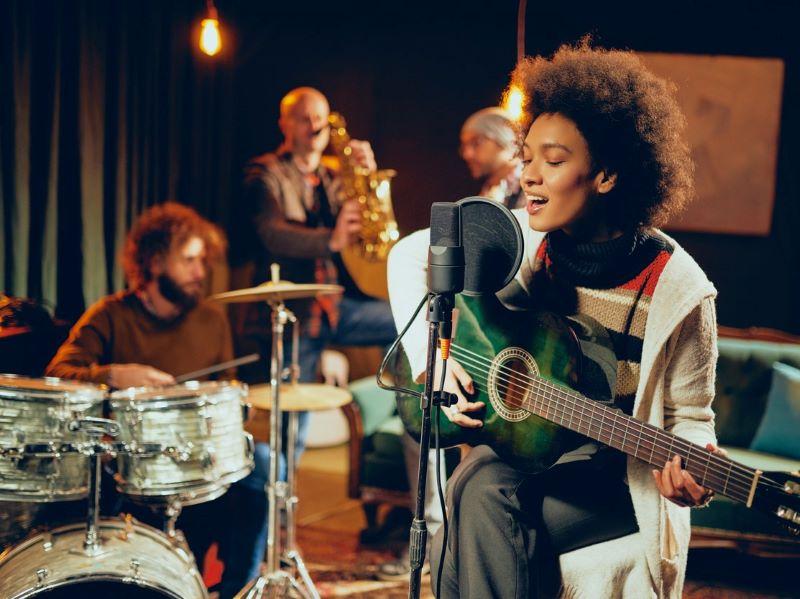Little more than one in four GCSE-level school-age children in England are engaging with music. It’s shocking that a country renowned for its musicians and musical output – from Thomas Tallis and Vaughan Williams to Dizzy Rascal and Dua Lipa – is now ploughing one of the smallest pots of government funding in Europe into arts and culture. Colleges and universities show no greater reasons to be cheerful, either, according to the State of the Arts Survey 2023.
There are glimmers of hope that the latest statistics could be turned around, though. UK prime minister Keir Starmer has promised “every child…the chance to study the creative subjects that widen their horizons”, and that’s (cough) music to our ears. The only way to do that is through long-term investment in education, because being good at music or any arts discipline requires time, skill and plenty of patience (and often money, of course, but we’ll come to that). Our own educators and alumni of the Royal Northern College of Music (RNCM) will tell you that it takes many years of disciplined study to master an instrument, and then many more to discover one’s artistic identity.
Music also remains a “who you know” business, and the sooner young musicians get comfortable with the idea of networking with their peers, industry professionals and music educators, the more demystified the business becomes and the better they’ll fare when they step into the industry proper. (Developing the communication skills of generations Z and Alpha are worth our focus; after all, these are the generations reportedly too scared to answer an unexpected phone call.)
- Spotlight guide: THE Awards 2024: learn from the best in UK and Irish higher education
- We need to bang the drum for music degrees
- THE podcast: when pop culture meets academia
For many years, the RNCM has supported the artistic growth of classical music pupils from ages five up through elite and accessible initiatives from our Junior RNCM team.
Our classical credentials are clear, then, but so too is our progressive spirit. Since 2022, we’ve developed RNCM Young Artists, opening up our state-of-the-art recording and production spaces to a diverse, hard-to-reach group of aspiring pop talent aged 11 to 18 from across Greater Manchester. Through weekly lessons, visiting masterclasses and live showcase events, RNCM Young Artists provides wraparound support for all students in their music-making, taking them through the processes of collaboration, composition, recording, producing, marketing and performance.
Perhaps the most critical and distinctive qualities of Young Artists, though, are its equitable aims and the conscious inclusion at its heart.
RNCM Young Artists has already provided opportunities for 92 young people in underserved communities to improve education, skills and life chances, and opened up viable pathways to higher education. Support from Sony Music Group’s Global Social Justice Fund lets us offer around half of our places for free, plus highly discounted and subsidised places to many more students, and bursaries to more still to help with essential travel and food costs.
RNCM Young Artists is central to RNCM’s access and participation work with under-18s (as a key part of our RNCM Engage initiative) and a way for us to address the wider crisis of inequity and under-provision in the music education sector. The project has extended RNCM’s reach to new areas of activity and new audiences – 41 per cent combined ethnicity (other than white); 55 per cent indices of multiple deprivations (IMD) quintiles one and two, with 76 per cent of those places fully subsidised; 29 per cent identifying as disabled – and the programme has a 94 per cent completion rate.
Young people at key stages 3, 4, and 5 are generally referred from schools, music hubs, tutors and grassroots community music groups for their raw talent and potential – further emphasising how vital joined-up music education needs to be to create meaningful pathways – while other students are self-taught bedroom musicians accessing structured tuition for the first time. The results are already encouraging; many more applicants are from non-traditional backgrounds, and several have “graduated” from Young Artists and joined conservatoire degree programmes – including two with us.
Repeated reports draw the same disappointing conclusion that talented artists from lower socio-economic backgrounds consistently find themselves excluded from formal education and so too from the wider industry. We must find a way to turn that around. That income can have such a profound effect on a young person’s outcomes should worry us all. After all, many musical giants have come from challenging financial backgrounds (in every musical field, from Haydn and Holst to Dolly Parton and Jay-Z), and we know financial pressures disproportionally affect people from the global majority. The only way to solve that is targeted intervention; there’s no excuse for accepting inequality when it’s staring us in the face.
We believe there should be no barriers to participation, that meaningful representation matters, that every musician in every discipline can benefit from elite performance and enterprise training, and that music should be allowed to evolve with each generation and be revered on the same stages. Only by supporting a diverse community of musicians to find their voices and talents alongside their peers, and with the support of respected professional musicians, will long-term barriers to elite education for young people finally be broken down.
Jennie Henley is a professor in music education and director of programmes at the Royal Northern College of Music (RNCM). RNCM Young Artists was shortlisted in the Widening Participation or Outreach Initiative of the Year category in the 2024 THE Awards. A full list of nominees can be found here.
If you would like advice and insight from academics and university staff delivered direct to your inbox each week, sign up for the Campus newsletter.




comment